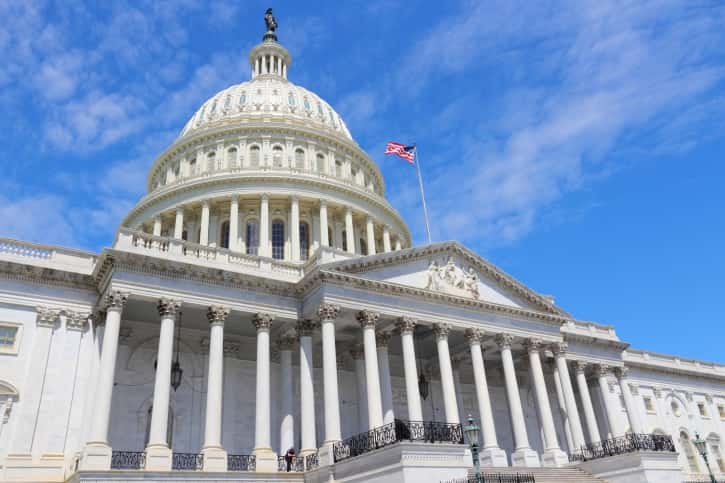On Nov. 5, the U.S. House of Representatives approved a six-year federal highway bill by a 363-64 vote, but not before including a couple of amendments related to alternative fuel vehicles.
Passage of the bill, the Surface Transportation Reauthorization and Reform Act of 2015 (H.R.3763), comes after the U.S. Senate approved its own version of a six-year highway bill in July. With a funding deadline looming, the two chambers have established a conference committee in order to resolve the differences between their respective bills.
The House considered over 100 amendments before passing its highway legislation, and the chamber’s final version features at least two notable alt-fuel industry provisions.
For example, the House bill includes an amendment by Rep. Tim Ryan, D-Ohio, and Rep. Grace Napolitano, D-Calif. According to a press release from Ryan, the amendment addresses one specific provision in the highway bill that modified how Congestion Mitigation and Air Quality (CMAQ) program funds can be used in regions exceeding pollution standards. Without clarifying the eligibility of alternative fuel vehicles in the provision, he says, the highway bill’s language could have effectively limited the states’ ability to use certain CMAQ funds for only diesel retrofits.
“Communities across the country are striving to improve air quality and reduce congestion, and the CMAQ program is a critical tool to achieve our goals,” says Ryan. “The Ryan-Napolitano amendment ensures that states will have the discretion they need to find innovative creative solutions to reduces emissions – including vehicles that run on clean natural gas, propane or electricity.”
Alternative fuel industry groups have lauded the amendment.
“Natural gas vehicles offer immediate benefits to improve air quality, and the CMAQ program has been a valuable tool for communities across the country to achieve this goal,” says Matthew Godlewski, president of NGVAmerica. “NGVAmerica applauds Rep. Ryan for his amendment which gives states new flexibility in utilizing CMAQ funds to select the best fuels and solutions to meet their individual challenges.”
Phil Squair, senior vice president of public and governmental affairs of the National Propane Gas Association (NPGA), says, “Propane autogas is an important part of helping Americans lessen pollution associated with motor fuels. NPGA is thrilled that Rep. Ryan’s common-sense proposal was adopted to broaden the technologies available to the marketplace to reduce pollution associated with diesel engines.”
Genevieve Cullen, president of the Electric Drive Transportation Association, has also signaled support for the amendment.
Furthermore, the House bill includes an amendment from Rep. Markwayne Mullin, R-Okla., requiring the U.S. Environmental Protection Agency to provide the same incentives to automobile manufacturers for the production of natural gas vehicles that it does for the production of electric vehicles.
“We need to encourage growth in our manufacturing market, not create unnecessary barriers,” says Mullins, in a press release.
In a post on NGV.com, NGVAmerica points out that the Senate’s highway bill did not include either of the aforementioned provisions. The group also notes that although Rep. Keith Rothfus, R-Pa., ultimately withdrew his amendment in the House bill to give a 2,000-pound weight allowance to natural-gas-powered trucks on federal highways, that provision is included in the Senate version.
NGVAmerica says it will meet with members of the conference committee to gauge what the reconciled long-term highway bill may include.
Notably, a short-term highway bill passed in July served as the legislative vehicle for the natural gas industry’s long-awaited “LNG fix” to finally become law. More information on that legislation is available here.








Thanks Rep. Ryan.